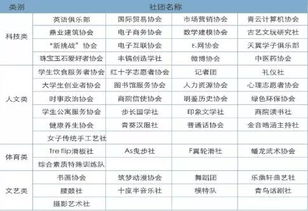Introduction
In the world of child development, play is often hailed as a fundamental aspect of a child's growth and learning. It is through play that children explore, learn, and develop essential skills that will serve them throughout their lives. But what is play in English, and why is it so important? This article will delve into the concept of play, its significance, and how it can be integrated into a child's daily routine to foster a well-rounded development.
The English Term for Play
In English, the word "play" is used to describe a wide range of activities that children engage in for enjoyment and recreation. It can refer to physical activities like running, jumping, and playing sports, as well as imaginative play involving pretend scenarios, storytelling, and role-playing. Play can also be solitary or social, involving one child or a group of children interacting together.
The Importance of Play
1、Cognitive Development
Play is crucial for cognitive development as it stimulates a child's brain and helps them to think creatively and solve problems. When children play, they are constantly making decisions, testing hypotheses, and learning from the outcomes. This process of trial and error is a natural way for children to develop critical thinking and problem-solving skills.
2、Social Skills
Play is a social activity that allows children to interact with their peers, which is essential for the development of social skills. Through play, children learn to take turns, share, cooperate, and communicate effectively. These skills are vital for building relationships and navigating social situations as they grow older.

3、Emotional Development
Emotional development is another area where play plays a significant role. Play allows children to express their emotions in a safe and controlled environment. It helps them to understand and manage their feelings, which is crucial for emotional well-being and resilience.
4、Physical Development
Physical play is essential for the development of gross and fine motor skills. Activities such as climbing, running, and jumping help to strengthen muscles and improve coordination. Fine motor skills, which involve the small muscles of the hands and fingers, are also developed through play, such as when children engage in activities like drawing, cutting, and building with blocks.
5、Language Development
Language development is closely tied to play. When children play, they are often required to describe their actions, express their thoughts, and communicate with others. This use of language helps to expand their vocabulary and improve their grammar and syntax.
Incorporating Play into Daily Routines
1、Unstructured Play
Unstructured play is when children are given the freedom to choose their own activities and playmates. This type of play allows children to use their imagination and creativity, which is essential for cognitive development. Parents can encourage unstructured play by providing a variety of toys and materials that can be used in different ways, such as blocks, puzzles, and art supplies.
2、Structured Play

Structured play involves activities that have specific rules or goals. This type of play can help children to learn about teamwork, strategy, and following instructions. Parents can incorporate structured play by organizing games, sports, or group activities that require children to work together towards a common goal.
3、Outdoor Play
Outdoor play is essential for children's physical health and well-being. It provides opportunities for children to engage in physical activities, explore their environment, and connect with nature. Parents can encourage outdoor play by setting aside time each day for children to play outside, whether it's in a backyard, a park, or a local nature reserve.
4、Imaginative Play
Imaginative play involves children using their creativity to create stories, scenarios, and characters. This type of play is crucial for developing language skills and cognitive abilities. Parents can support imaginative play by providing props, costumes, and materials that encourage children to create their own stories and scenarios.
5、Educational Play
Educational play combines learning with fun. It can involve activities such as reading, writing, counting, and exploring scientific concepts. Parents can integrate educational play into their children's routines by choosing age-appropriate books, puzzles, and games that are both entertaining and educational.
Conclusion
Play is a multifaceted activity that plays a crucial role in a child's development. It is through play that children learn to think, socialize, manage their emotions, and develop their physical abilities. By understanding the importance of play and incorporating it into daily routines, parents can help to foster a well-rounded development in their children. Remember, play is not just a pastime; it is an essential component of a child's growth and learning journey.










